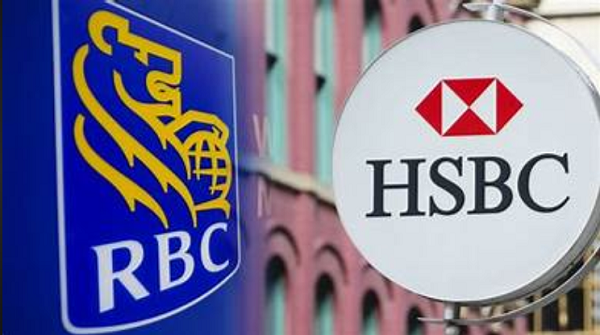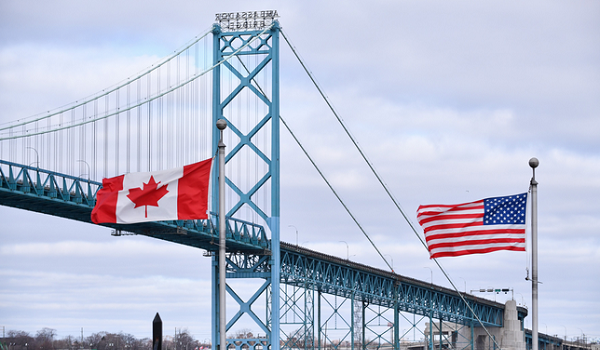As the HSBC acquisition began RBC CEO promised to protect customers, staff
As its $13.5-billion takeover of HSBC Canada becomes official, the CEO of RBC vows Canada’s largest bank will live up to its commitments to protect customers and staff at its new acquisition.
“A hundred per cent, we’re going to honour those commitments, because that’s what we do,” said Dave McKay in an interview with the Star Wednesday.
Among the commitments, agreed to with federal finance minister Chrystia Freeland, are keeping at least 33 of HSBC’s 130 branches in Canada open, as well as keeping Mandarin and Cantonese-speaking services available at those branches and at telephone-banking call centres.
As part of an agreement with Freeland and the Commissioner of the Financial Consumer Agency of Canada (FCAC) which helped clear the way for approval of the merger, RBC also agreed to appoint a third-party auditor to make sure they were living up to their obligations. The takeover officially closed March 28, and as of this week, former HSBC branches are now operating under the RBC banner.
The bank also agreed to provide $7 billion in financing for the construction and renovation of affordable housing, and to donate one per cent of all profits to community and charitable organizations.
But McKay insisted it won’t be fear of the auditor that will keep RBC in line. Instead, he argued, it’s just good customer service.
‘Losing HSBC, especially to RBC, is a real one-two punch’
“We planned for (the commitments) because it’s good business and it’s how you keep your customers and your employees together,” said McKay. “We fully intend to meet all of those, and they’re welcome to audit them, because we’re going to do them.”
As part of the takeover, which was also approved by the federal Competition Bureau, RBC also guaranteed it will keep former HSBC front-line branch staff employed for at least two years, even if the branches they had worked at are closed in the wake of the deal.
“We still have the same capacity at the branch level, and at the call centre for those language capabilities,” said McKay. “We haven’t lost anything. Now we can make that language capability available to all our clients.”
Living up to the commitments won’t be particularly onerous for RBC, said Keldon Bester, executive director of the Canadian Anti-Monopoly Project. Nor, added Bester, will the commitments replace the loss of a bank which had frequently offered lower mortgage rates than the big six financial institutions which will now control 95 per cent of the Canadian banking market.
“Losing HSBC, especially to RBC, is a real one-two punch,” said Bester. “We see the mortgage brokers saying ‘those bottom-floor posted rates? They’re gone.’ We’ve lost that option.”
Another buyer could have come forward
While the takeover was sparked by HSBC’s decision to exit the Canadian marketplace the Competition Bureau — or Freeland — still could have said no, Bester argued.
“I empathize with the government folks who said ‘they’re gonna leave.’ But the reality is were they really going to light the loan book on fire and just walk away? It’s a big bluff,” said Bester.
Another buyer could have come forward, said Bester. Or HSBC could have changed its mind and kept operating here.
“When there are more stringent restrictions around mergers and acquisitions, the decision to stick around, to invest in the business, to grow becomes relatively more attractive,” said Bester, who pointed to the example of telecom giant AT&T’s aborted takeover of T-Mobile’s U.S. operations.
“ATT tried to buy T-Mobile. They were told no. T-Mobile took the break fee off of that, invested and is now the No. 3 U.S. carrier and ended up buying Sprint at the end of it,” said Bester.
‘We want … all those customers to be happy”
John Lawford, executive director of the Ottawa-based Public Interest and Advocacy Centre, said there’s another reason regulators or the government should have nixed RBC’s takeover of HSBC Canada: The prospect of a merger between some of Canada’s Big Six banks.
“The doomsday world we’re trying to avoid is going from six to five to four to three,” said Lawford. “Every time there’s a merger that is not said no to — I don’t mean ‘yes with conditions’ — it emboldens the banks to give it another try.
And, said Lawford, there’s a basic problem with some of the reasoning used by both the Competition Bureau and the federal government, both of which found that the takeover won’t substantially lessen competition in the banking sector.
“The problem with the test is that once you get to a certain size, you can hoover up anybody, without a substantial change to competition,” said Lawford.
Still, insisted McKay, the takeover will benefit former HSBC customers. It would be bad for business otherwise.
“That’s what we fretted about for the last 18 months. To make sure that if there was something different, it’s better, or equivalent,” said McKay. “We want to retain all those customers, and for all those customers to be happy.”
This article was first reported by The Star












